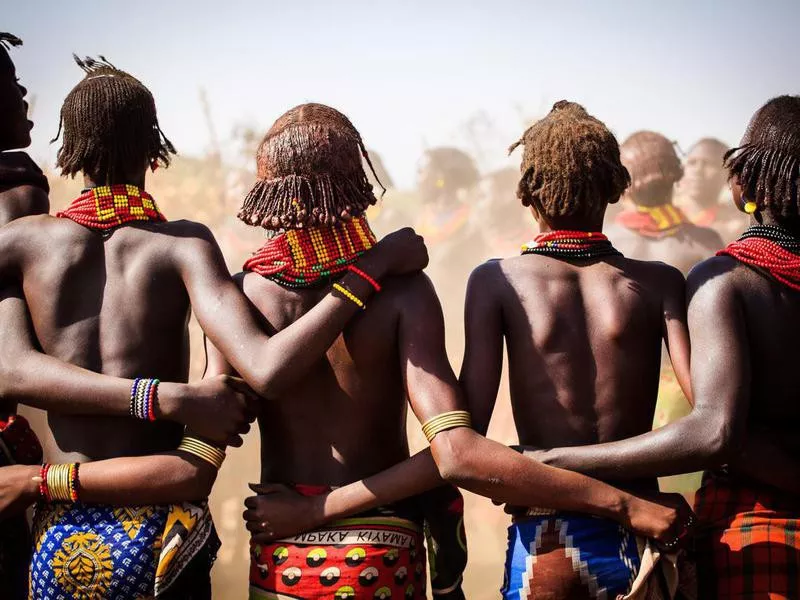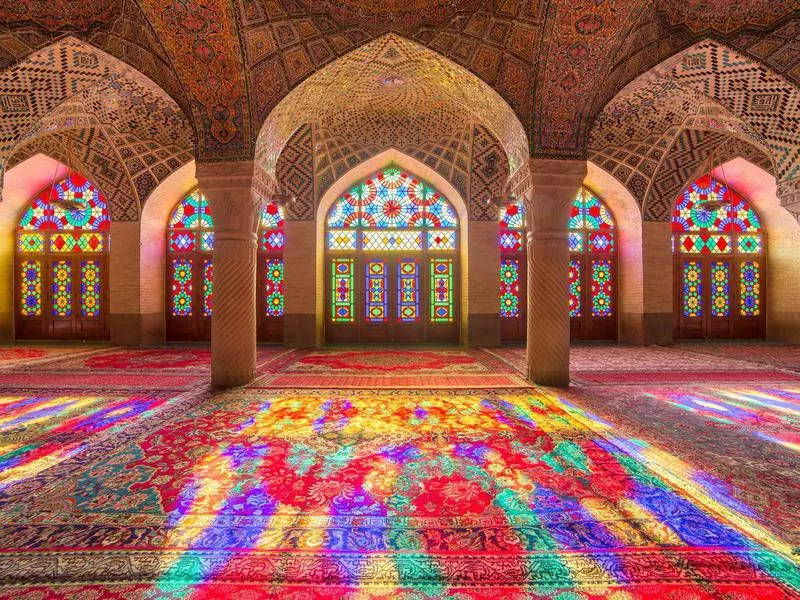Religions often define a culture’s behaviors, morals and customs, affecting all walks of life. Music, art, marriage, funerals, holiday celebrations — you name it, religion often casts its influence one way or another. And that’s not to mention, religious places of worship are some of the most-visited among locals and tourists alike.
But when it comes to religions of the world, how many do you know? There are hundreds of religions that you have likely never even heard of. These religions date as far back as several-thousand years to as recently as just 60 years ago. There are religions that are concentrated in a very small portion of the globe and ones that have adherents (or followers) in the majority of the world’s countries.
So which ones are the world’s most popular? We took a look at the top 20 most-practiced religions across the globe and broke them down for you to see just how popular they are, where they are practiced and what makes each of them unique. Do you see your chosen faith on the list?
About Unitarian Universalism

Getty Images
Stemmed from the Protestant Reformation, Unitarian Universalism began in Poland and Eastern Europe in the 16th century. It moved to England by the mid 17th century. Today, there are about 1,000 congregations in North America. The North American church is much more about “humanism” than theism.
Today, the religion encompasses Christians, Jews, Buddhists, humanists, neopagans and more. The foundation of North American Unitarianism rests on the unity of God and rejection of the Trinity, the importance of reason in understanding the Bible, the importance of human nature in discovering religious truths, God as having a loving nature and the rejection of original sin. The religion has also been influenced by philosophies from Ralph Waldo Emerson and Henry David Thoreau.
About Baha’i

Getty Images
Born out of what is now Iran in 1844, the Baha’i faith grew out of the Shi’ite branch of Islam. Started by a young man who called himself The Bab, he proclaimed that a messenger would arrive from God, who would be the next prophet. His teachings spread rapidly, though were viewed as heretical by the government of Persia, and more than 20,000 of his followers were brutally executed during that time. The Bab was also executed in the year 1850.
A nobleman, named Mirza Husayn Ali, gave up his life of privilege to become one of the leaders of the religion. Over the course of his life, he gained a substantial following, even though he was forced to live in exile. In his will, he named his son as the head of the faith and interpreter of God’s teachings. The succession has remained in the family since. In 1963, the Universal House of Justice was elected to direct the affairs of the worldwide Baha’i community.
About Judaism

Getty Images
Have you ever wondered what the world’s oldest monotheistic religion is? Turns out, it’s Judaism — even though it is one of the least widely practiced religions in the world. Essential to the Jewish faith is the belief in one God who has built a covenant, or agreement, with his people. God communicates through prophets, rewards good deeds and punishes evil ones. Unlike Christianity or Islam, Judaism believes that their Messiah has not yet arrived.
According to Jewish history, God first presented himself to a man called Abraham, who became known as the father of Judaism. It was with Abraham that God made his covenant. Abraham had a son Isaac and one son Jacob, but Jacob took the name Israel, and thus his people became known as Israelites. Throughout history, Jewish people have been persecuted for their religious beliefs, which over time led to the creation of Israel. There are various sects of Judaism, ranging from liberal to highly conservative.
About African Traditional Religions

Getty Images
The traditional religions of Africa are among some of the oldest in the world, and while they are all greatly different from one another, they have a few things in common. First, these traditions are oral, meaning they are passed down by word of mouth, rather than in scripture. Many of them also have a system of deities, including higher and lower gods, such as a supreme creator and then a council of other spirits.
Animism is a core of many African religions as well, which includes worshipping ancestors and beings in nature. Many of them also hold a belief in the afterlife. Deities are honored through sacrifice of animals, libations, and presentation of food, flowers and semi-precious stones. The Sub-Saharan Africa religions are spread among 43 countries.
About Hinduism

Getty Images
If you were wondering what the world’s oldest religion is, meet Hinduism. The roots of Hinduism stretch back more than 4,000 years. Unlike Christianity and Islam, there is no one founder of Hinduism. In fact, it’s not a single religion at all, but one that is made up of many different beliefs. At the core, Hinduism is referred to as a “way of life,” as opposed to a religion. Most forms of Hinduism worship a single God, Brahman, but recognize other gods and goddesses. Hindus believe in reincarnation as well.
Most scholars believe Hinduism originated near modern-day Pakistan. Hinduism relies heavily on the concept of karma and dharma. Karma is the universal law of cause and effect, in that people’s actions and thoughts determine their current and future lives. Dharma is what all Hindus strive to achieve, which is a code of living that is rooted in morality and balance.
About Islam

Getty Images
The roots of Islam go back centuries, though most scholars date the creation of the religion to the seventh century. So, while it is the second-widest practiced religion in the world, it is actually the youngest of the major world religions. Islam started in the city of Mecca, which is in modern-day Saudi Arabia and centers around the life of the prophet, Mohammed. Muslims, or those who practice Islam, believe that Allah’s (God’s) word was shown to the prophet Mohammed through the angel, Gabriel, and that prophets were sent to teach Allah’s law.
The holy text of Islam is the Quran. Muslims believe Mohammed was the final prophet sent by God to bring their religion to the rest of the world. When Mohammed died, a debate sprang as to who was to replace him, which led to the two different sects of Islam: Sunnis and Shiites, though there are others. Today, Islam is the world’s fastest-growing religion, and experts believe it will surpass Christianity by the middle of the 21st century, which leads us to the No. 1 spot on this list…